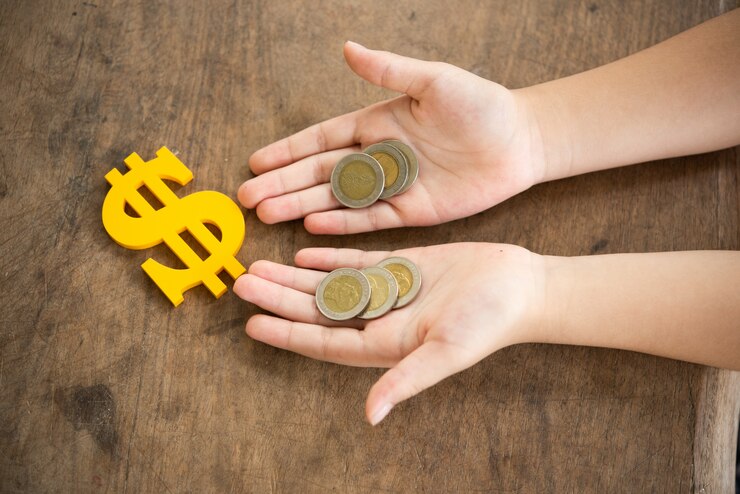Inflation is an economic phenomenon that directly affects people’s purchasing power. As the prices of goods and services rise, the value of money decreases, which can have significant repercussions on personal finances. In this article, we will explore how inflation impacts purchasing power and what strategies we can adopt to protect our money and maintain our financial stability. From investing in assets that adjust to inflation to adjusting our consumption habits, there are several ways to mitigate the effects of this economic phenomenon.
What is inflation and how does it affect purchasing power?
Inflation is the widespread increase in the prices of goods and services in an economy over an extended period. While a mild increase in prices can be positive for the economy, high levels of inflation can be harmful, as they erode consumers’ purchasing power. Purchasing power refers to the amount of goods and services a person can acquire with a specific amount of money. When inflation rises, the same amount of money buys less than before, meaning consumers need to spend more to get the same.
1. Types of inflation: moderate vs. high inflation
- Moderate inflation: Refers to a moderate and gradual increase in prices. This type of inflation is generally manageable and does not cause major economic difficulties for most people.
- High inflation: Occurs when prices rise rapidly and uncontrollably. This can be devastating for middle and low-income households, as the cost of living increases significantly.
Effects of inflation on personal finance
Inflation has several effects on personal finance, and it is crucial to understand how it specifically impacts our wallets.
1. Increased cost of living
One of the most immediate effects of inflation is the rise in prices of basic goods such as food, transportation, and housing. This especially impacts those with fixed or limited incomes. For example, a family that spends 30% of its monthly income on food may notice that, due to inflation, they need to spend more money to buy the same amount of food.
2. Reduction in the value of savings
Money kept in bank accounts with no returns is not protected from inflation. If the inflation rate is higher than the interest rate earned on saved money, the real value of those savings will decrease. This means that even though the nominal amount of money in the savings account remains the same, its purchasing power will diminish over time.
3. Increased interest rates
To control inflation, central banks often raise interest rates. This directly affects loans and mortgages. For example, if you have a variable-rate mortgage, an increase in interest rates can make monthly payments higher, affecting the household budget.
How to protect your money from inflation
Although inflation is inevitable in any economy, there are several strategies people can adopt to protect their money and minimize negative effects.
1. Invest in inflation-adjusted assets
One of the most effective ways to protect the value of money during periods of inflation is to invest in assets that can adjust to these changes. Some examples include:
- Real estate: Properties tend to maintain their value or even increase during times of inflation. Investing in real estate can be an effective way to preserve the value of savings.
- Gold and precious metals: Gold has historically been considered a safe haven in times of economic uncertainty. Precious metals, such as gold and silver, tend to increase in value when inflation is high.
- Inflation-indexed bonds and stocks: Some types of bonds and stocks are designed to offer returns that outpace inflation. Government inflation-indexed bonds, like TIPS in the United States, adjust their value based on inflation.
2. Diversify income sources
Inflation can also make salaries lose purchasing power. To counter this effect, it is recommended to seek ways to diversify income sources. This could include side jobs, passive income, or investing in a personal business. This way, you reduce the risk of relying solely on a fixed salary that may lose value over time.
3. Adjust consumption habits
Another way to protect yourself from inflation is by adapting consumption habits. Here are some strategies:
- Budget planning: It’s crucial to keep a close track of income and expenses. Creating a detailed budget can help reduce the impact of inflation by making adjustments in non-essential areas.
- Seek more affordable products and services: During inflationary times, searching for more affordable alternatives for goods and services can help maintain your standard of living without compromising well-being. Comparing prices and taking advantage of offers is essential.
- Bulk buying: Purchasing frequently used products in larger quantities can lead to savings in the long term. This is especially useful for non-perishable items that increase in price over time.
4. Maintain an emergency fund
Having an emergency fund is one of the best ways to protect yourself from inflation, especially during times of economic crisis. This fund can help cover unexpected expenses without resorting to loans that could carry high interest rates. During inflation, it is also important that the emergency fund is invested in assets that, at the very least, keep up with inflation.
What to expect from the future of inflation?
The future of inflation will depend on various economic factors, both global and national. If central banks implement effective inflation control policies, the economy may stabilize. However, technological advancements, changes in fiscal policies, and global crises also play a crucial role. It’s important to stay informed about economic developments and adjust financial strategies as needed.
Conclusion
Inflation is an economic reality that can have significant effects on people’s financial lives. However, by understanding how it works and taking proactive measures, it is possible to protect yourself from its negative effects. From investing in assets that outpace inflation to adjusting consumption habits, each strategy can help maintain the value of money. Additionally, having an emergency fund and diversifying income sources are key steps to maintaining financial stability during times of economic uncertainty.
